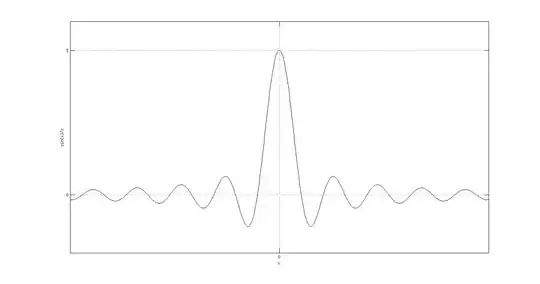$$\frac{\sin(x)}{x} = 1$$ and $$\frac{1-\cos(x)}{x} = 0$$
I can't come up with any solution. Could you please help me?
Also: $$\lim_{x\to 0} \frac{1-\cos(x)}{\tan(x)\sin(x)}$$
$$\frac{\sin(x)}{x} = 1$$ and $$\frac{1-\cos(x)}{x} = 0$$
I can't come up with any solution. Could you please help me?
Also: $$\lim_{x\to 0} \frac{1-\cos(x)}{\tan(x)\sin(x)}$$
$$\frac{1-\cos x}{\tan x\sin x}=\frac{(1-\cos^2x)\cos x}{(1+\cos x)\sin^2x}=\frac{\cos x}{1+\cos x}$$ if $\sin x\ne0$
Here as $x\to0\implies x\ne0\implies\sin x\ne0$
Hint:
write down the definition of the derivative (i.e. the difference quotient $\lim_{h\to 0}\dfrac{f(x+h) - f(x)}{h}$) for
$$ \frac{d}{dx}\vert_{x=0}\sin(x) $$
and $$ \frac{d}{dx}\vert_{x=0}\cos(x) $$
$\sin(x) = x$ for small values of $x$; i.e. $\sin(x)$ and $x$ have the same evolution. So $$\lim_{x\rightarrow 0}\frac{\sin(x)}{x}=\lim_{x\rightarrow 0}\frac{x}{x}=\lim_{x\rightarrow 0}1=1$$
